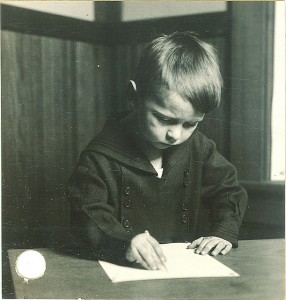“It won’t happen to me….”
“It won’t happen to me….”
by Glenn Starkey
I’ve spent the majority of my adult life protecting people in some manner whether alone or with a team, unarmed or carrying concealed weapons. Shadowing people of all levels on executive protection details may sound exciting, but they encompass tiring, long hours of extreme alertness.
We wish the world was only filled with good people. Unfortunately, that is not the case. With a holiday season, the flow of money and opportunities for crime are higher than normal. Protecting yourself and loved ones daily doesn’t require a bodyguard or the carrying of automatic weapons, but it does demand your personal awareness of immediate surroundings and common-sense.
The subject of this writing could be a semester long course or months of intensive hands-on training. I do not have the luxury of time and space here so I will touch upon a few basic elements to consider. By the end you will be shaking your head and saying, “I knew that!” yet these very points have been the most overlooked by crime victims because they believed “It won’t happen to me.”
We’re going to look at personal security actions from the level of an everyday citizen, not a CEO or major public figure. For now let’s break your life into four components: (1) Personal Communications, (2) At Home, (3) Travel and, (4) Public Venues. There are more we could use but we are keeping this simple due to brevity.
PERSONAL COMMUNICATIONS: Think about computer fraud, those phishing and scam emails, and computer viruses. Some of the banking phishing/scam emails appear quite authentic and it’s easy to be duped into submitting your personal data. And don’t fall for the “Millions of dollars are waiting for you to claim in Nigeria” scams. Primarily, bad guys are trying to hook the greed in weak people with these emails. Another scam is to receive an email from a friend which states he/she is overseas, lost their wallet and need you to wire them money. Of course they will repay you upon their return. The email address looks authentic, you want to assist your dear friend, you send money and later discover they were simply in the next state visiting relatives. It’s amazing what all scams are out there. Changing passwords on your computer and the various programs you use also helps. One last item; be careful what personal information you give out over the telephone. Be sure who you are talking to before providing information to callers, even if it means you must call the main number of a company and request to speak to the caller again.
AT HOME: If you park your vehicle in your residence driveway, lock it when unattended. Don’t leave valuables lying in the seats. These attract the attention of car burglars prowling neighborhoods at night. Keep a cell phone in your bedroom at night to use to call the police if needed. Remember to lock your residence’s doors after you have entered the house. Check your windows to insure they are locked. People often open windows to air their homes and forget to lock the windows later after closing them. Don’t open the door to strangers or allow them to enter unless you know them. If someone displays an ID of some official nature, don’t be afraid to call their agency or the police to properly identify them. When ID’s are flashed at you then quickly closed and put away by the unknown person, simply tell them to display it again so you can better read it. Don’t be intimidated by shiny badges and fancy ID’s in leather wallets. Fake badges and homemade ID’s are easy to acquire. Insure your residential alarm works properly. Call your alarm monitoring company at least once a month and advise them you are going to test it – or set off the alarm to see if the alarm company is actually monitoring. During Christmas, don’t display wrapped gifts where they can be seen through the windows. Everyone wants to stand their Christmas tree in the front main window of their homes, but it also serves as a beacon for burglars wanting quick hit and runs.
TRAVEL: When you are out and about, keep your vehicle doors locked. Be aware of vehicles that seem to be following you on roadways or from store to store. Be alert to your driving; no texting or long unnecessary mobile phone conversations. At a red light, leave space between your front bumper and the vehicle in front of you. You want enough room to pull out and go around them if needed. Car jackers will attempt to box you in between their vehicle behind you and their partner in front of you. Always park your vehicle at businesses in well-lit areas if possible. Try not to park in desolate areas. Does your car alarm work? Remember, you can use the alarm function to attract attention along with sounding your car horn (and headlights on bright during daylight hours also grabs attention.)
PUBLIC VENUES: Be aware of people around you, especially those people that seem to be too close when there is no need to be. When out in public, don’t flash your money where everyone can see. You would be surprised how often people do this without realizing their actions. Ladies, keep your purses zipped, snapped, and closed under your arm in front of you, not swinging open behind you. Men and women – if you carry briefcases or laptop bags keep them with you and beware when setting them down. It takes less than a second to calmly walk by and grab one. When walking through a parking lot, keep your head up and scan the area around you as you walk. Bad guys don’t generally want eye contact with their victims before they strike. Don’t walk like a victim with head down and shoulders slumped as if you were a meek lamb. When walking to your car, have your keys out, finger on the panic button, and look about your vehicle as you approach. If you see someone lingering around your vehicle or cutting through a parking lot walking toward you, slow down to see where they are truly heading or even return inside the business where you just came from. When you enter your vehicle, the first thing to do is lock all doors, then do the thousand little things you would normally do which distracts your attention from noticing someone is walking up to your vehicle. Also, let your family, or someone, know your basic travel schedule in the event something occurs and you are not home by an appropriate time.
These are all basic, common-sense actions you should think about year round. There are far more, and every geographical location has its own specific issues, but the ones I’ve listed will be of general everyday assistance to you.
To start training yourself, play a game. The next time you are at a busy store or the mall, watch the people as they pass by. Look at the number of women’s purses that are open and hanging behind them. Watch how people carelessly set laptop bags, briefcases, and electronics down and pay little regard to them. Watch how people flash wads of money and which pocket they return the money too. Look at how people walk and their overall demeanor: are they acting like a victim or someone you wouldn’t want to confront? Next time you walk by a car parked next to you, were there valuables laying in plain view, inviting a car burglar to smash the window, grab and run? And pay attention to people’s hands, where they are and what’s in them. Any police officer or Secret Service agent that has worked the streets will tell you no one has ever been shot by someone with a pair of empty hands. If you are confronted by a robber, stay as calm as possible and don’t try to be a hero. There’s nothing in your wallet or purse that cannot be replaced. In this day and age, robbers shoot people for little to no reason in order to see them die, so don’t take chances.
As a writer, you can easily incorporate people’s antics into your novels and have a sense of realism. But most of all learn to pay attention to your “gut-feeling” that something may be wrong. Women’s intuition is real. Men have it too. Listen to your senses. Animals survive in the jungle because of their senses. We live in concrete jungles. And if you believe nothing will ever happen to you then I have some swamp land to sell you that will make a great parking lot.
Be Safe.
@GStarkeyBooks




